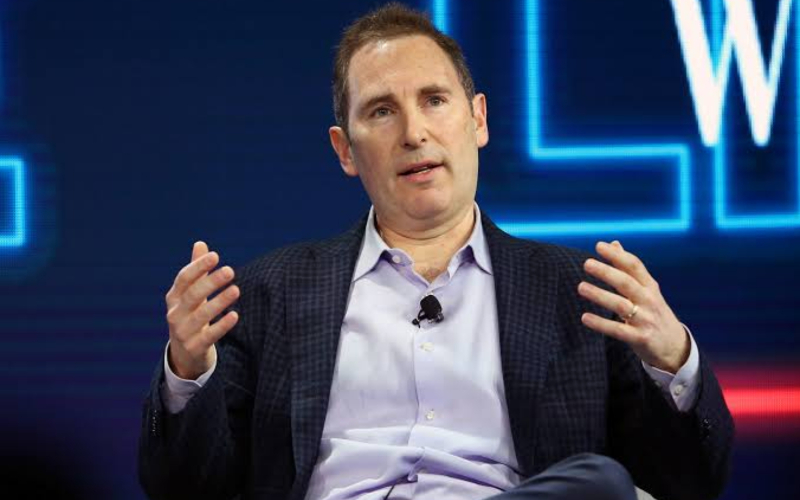Even after the company’s shares lost half their value in 2022 due to concerns about a recession and a terrible year for tech stocks in general, Amazon CEO Andy Jassy claimed he doesn’t pay much attention to the stock price of the company.
Jassy stated that rather than concentrating on a single moment in time, he prefers to consider the stock’s performance over the long term.
“I don’t spend a lot of my time focused on the stock price,” Jassy said Thursday in an interview with CNBC’s Andrew Ross Sorkin on “Squawk Box.”
“In any one period of time it may be further up or further down, but it really matters what you do for customers over a long period of time.”
The largest year loss for Amazon’s stock since the dot-com disaster in 2000, when it fell 80%, was in 2022, when it fell by roughly 50%.
This year, its shares have recovered and are already up more than 18%. But compared to a year ago, the stock is still down nearly 35%.
In 2022, the stock’s decline led to a sharp decline in Jassy’s remuneration.
According to securities records, Jassy was paid last year in the amount of $1.3 million.
When Jassy succeeded founder Jeff Bezos in 2021, he received a salary package totaling about $212 million, with a sizable amount made up of Amazon shares.
In a proxy statement on Thursday, Amazon stated that it did not issue Jassy any additional stock until 2022.
Investors have praised Jassy’s recent cost-cutting efforts. Due to a surge in e-commerce during the epidemic, Amazon went on a recruiting and construction binge.
Jassy and other Amazon executives said they underestimated how long the spike would endure when the demand started to decline last year.
In its 29-year history, Amazon has started the most massive layoffs, scaled back on a number of experimental ventures, and stopped corporate hiring.
Jassy stated in his shareholder letter on Thursday that the company also made steps to reassess its fulfillment network to better manage costs after its footprint became larger and the company paid more money to deliver goods fast from one end of the country to the other.
The worries go beyond cost increases. Due to inflation-weary individuals being more cautious about discretionary purchases and businesses cutting back on their cloud expenditure due to growing inflation and a poor economic outlook, Amazon is now dealing with slower growth in its two major industries, retail and cloud computing.
“Despite growing 29% year-over-year (“YoY”) in 2022 on a $62B revenue base, AWS faces short-term headwinds right now as companies are being more cautious in spending given the challenging, current macroeconomic conditions,” Jassy said in his letter.
“We have a lot more growth in front of us,” Jassy told CNBC. “The fact that we were able to meaningfully streamline our costs while at the same time preserving the strategic long-term investments that we believe can meaningfully change customer experiences in Amazon for the long term, I think we have a lot to look forward to.”
CNBC


